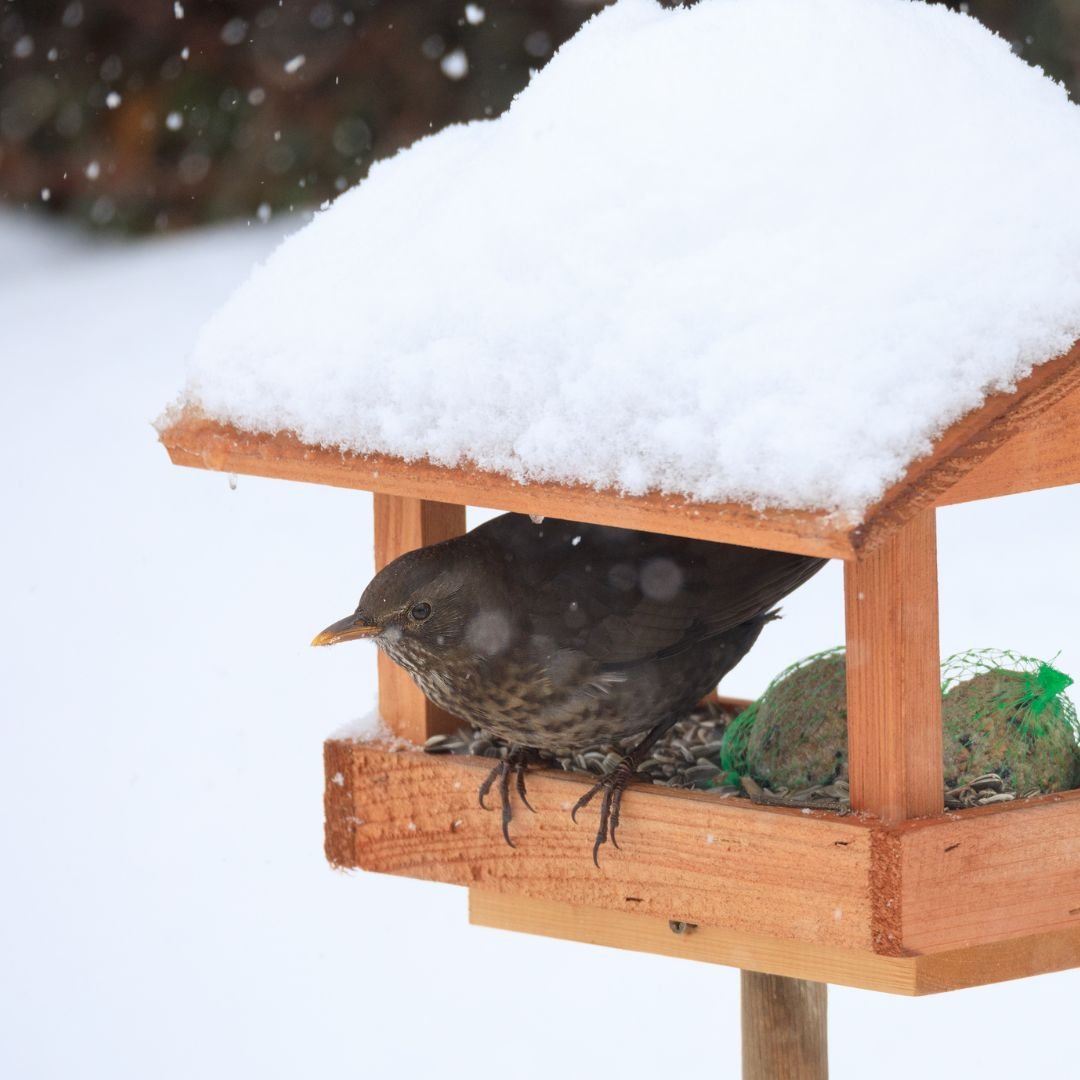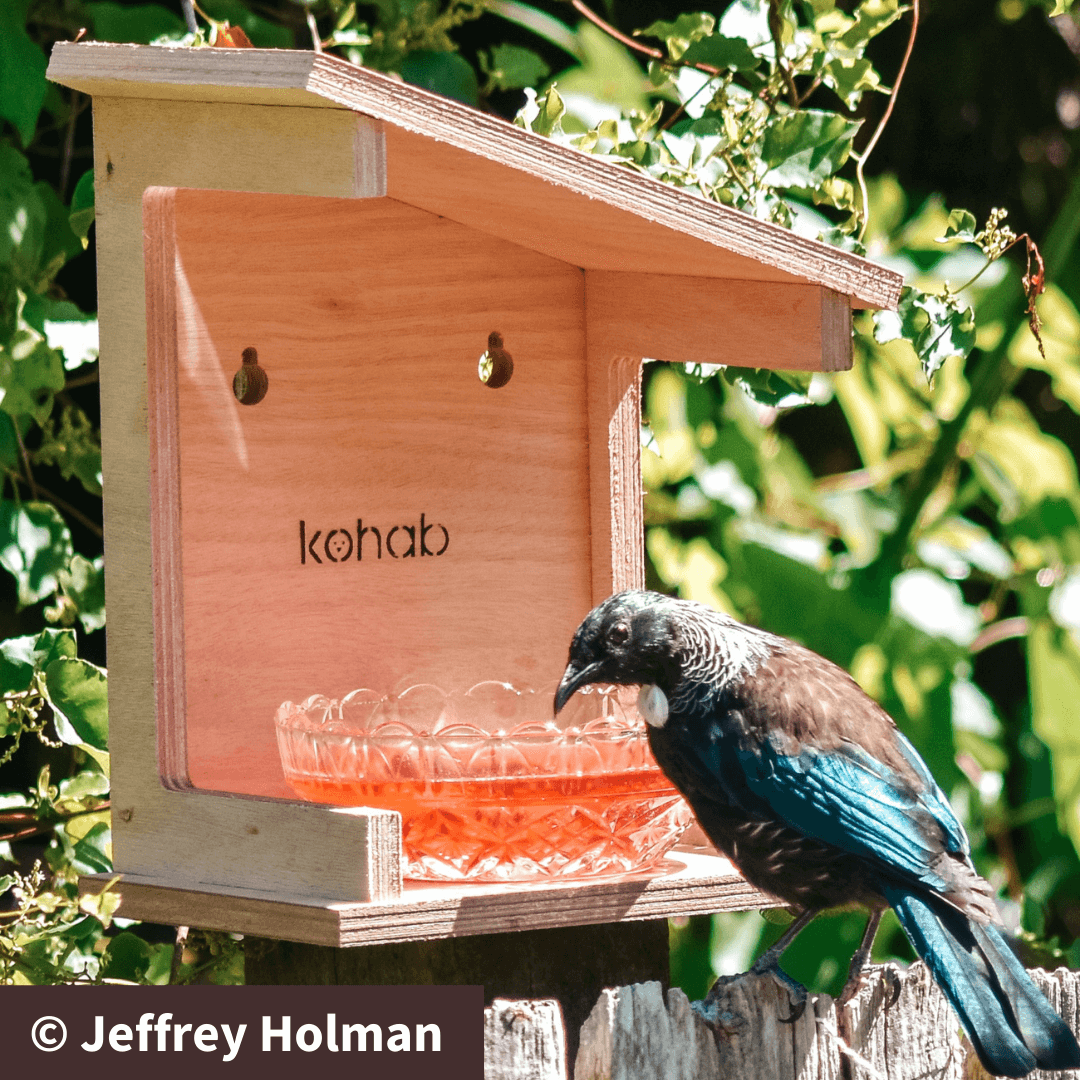8 Tips on feeding birds this winter
Winter is a difficult time for NZ Birds, but it's not difficult to help them thrive.
Winter can be a difficult time for the NZ Birds we kohabit our gardens with, but it's not difficult to give them a helping hand. Anyone can do a little something to help our feathered friends thrive over the cold months.
So here are eight tips on paying forward to your garden birdlife, they are sure to pay you back doulbe by providing you with plenty of entertainment and enjoyment.
Get to know the birds in your garden.
Our New Zealand gardens get visited by several different species that all eat different things, in different ways. To support your visitors it's good practice to put out a little of everything to attract a wide variety of birdlife and supplement their diets.
To find out more about the birds you see in your garden take a look at the Kohab NZ Bird Guide. The guide explains some basics about each species and gives you a rundown on what they eat and how best to support them.
Leave out some leftovers...
Feeding the birds doesn't have to cost a lot. There are lots of our human leftovers that they will be happy to tuck into.
Dried fruit, unsalted nuts, fruit thats a bit past its best, mild grated cheese or even cooked potatoes or corn. Just make sure whatever you put out doesn't have salt or additives and preservatives in.
Careful where you put out fruit.
The Kohab Love Bird Feeder
Unfortunately, birds aren't the only creatures we kohabit with who like to eat fruit. In New Zealand, there are an estimated 47 million possums who will happily steal any fruit left out. So when you are putting fruit out make sure you put it out of possum reach. A Kohab Fruit Bird Feeder is perfect as you can hang these on small outward branches that can't support the weight of a possum.
Don't poison your dogs.
Dogs share the birds' love for dried fruit. But unfortunately, dried fruit can be toxic to them. So put any dried fruit or seed mixes with dried fruit in feeders well out of the way of your dog.
The SPCA NZ has some great advice on dangerous foods for dogs. If you're unsure if your bird food is safe then it's best to check and take precautions.
Birds need water.
Even in the winter birds need a clean source of water to drink and bathe in. Ensure that you put fresh water out regularly and if it freezes over break it once or more a day so the birds can use it. Find out more about setting up a bird bath here in our Kohab Life blog: 5 tips for setting up a birdbath.
Ensure you don't put out too much food.
It's important not to leave food out for days at a time. Food thats left out, especially in the wet winter is likely to go mouldy and become dangerous for the birds to eat. It will also stop the birds from visiting you which is counterproductive. And it can attract rats. It's best to only put out enough food for one day.
Make sure you keep it clean.
You need to wash bird feeders frequently to help limit the potential for the spread of any germs or diseases. Plus it will keep them looking attractive in your garden. We recommend you use a 5% disinfectant solution and give your feeders and birdbaths a good scrub outside followed by a thorough rinse.
Always wear gloves when handling feeders, birdbaths or birdhouses. Birds can carry infections that can be dangerous to humans so good hand hygiene is essential.
Location, location, location!
When garden birds are busy eating, they are vulnerable to attack. Where you place your feeder can make all the difference. Make sure your feeder is close to thick shrubs or trees to give them a safe place to escape from predators should they appear. Ensure the ground under your feeder is clear and give at least 2 metres of clear ground cover around any ground feeders, as this will make it harder for cats to hunt birds while feeding.
If you own a cat, be responsible and ensure they wear a bell so that the birds can hear them coming and have time to flee. Kohab has a range of attractive Cat Bells to help keep your visitors safe from your BFF - Best Furry Friend.
Supplement their diets with high-quality bird foods.
By providing NZ birds in your garden with high-energy food and good nutrition you will help them thrive. Kohabs’ foods have been developed to supplement wild birds' natural food sources to support their health and wellbeing.
For the seed eaters, we have a range of high-quality seed mixes. And we have a PLUS range which provides an additional boost with extra protein and high-energy ingredients.
For the nectar eaters, we have Kohab Bird Nectar. Our glucose-based bird nectar includes the superpower of beetroot, you just need to add water. Not only does this give our bird nectar its beautiful red colouring, but it also attracts birds, making it easy for them to find and enjoy. In addition, beetroot is rich in nitrates, antioxidants, vitamins and minerals to help the birds thrive and maintain their energetic lifestyle.
And we have a range of Kohab Starter Kits to help you get set up to feed the birds in your garden.
Once you are all set up it's time to settle down with a nice cup of tea and enjoy your visitors. And remember to give yourself a pat on the back for helping support the wildlife you kohabit with through the tough winter months.








